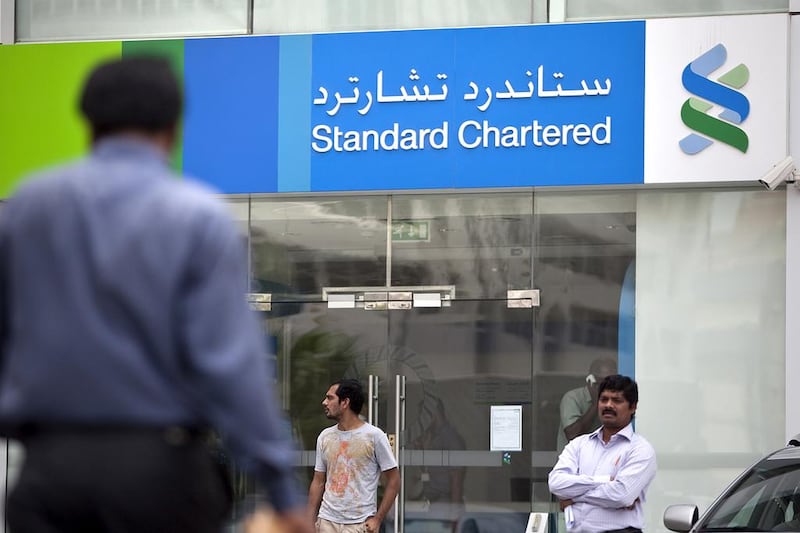Standard Chartered said its retail banking customers will not only be rewarded with better interest rates and higher borrowing limits when the country’s credit bureau goes online, but they will also get the money they want quicker.
That is because StanChart and many other banks will have all the information they need about their clients in front of them and approvals for loans will take a fraction of the time they now take, said Jaydeep Gupta, the head of UAE retail banking for the London-based lender. StanChart preapproved customers can already access loans instantly online, a trend that will become more widespread among banks once the bureau gets going in earnest, he said.
“Today, if you are my existing customer and if I have preapproved you, you get into online, the moment you log on a banner will pop up saying you are eligible for, say, a Dh50,000 personal loan. Should you wish to take it, click here, click here, click here and in three minutes the money is in your account,” Mr Gupta said.
“People who are building infrastructure to link up to the credit bureau in due course will be in a far better position to drive more efficient delivery of product. It will be a lot cheaper. You should get a better limit, you should get a better interest rate. It has happened everywhere else so there’s no reason for it not to happen here.”
Al Etihad Credit Bureau, which is expected to be fully operational next year, intends to create a database of the credit history of all retail borrowers, enabling banks to build an accurate picture of a potential borrower’s indebtedness, allowing them to assess his or her ability to honour the debt. At the moment banks cannot check the credit history of customers relating to other lenders.
Last month it said it had started issuing consumer credit reports to banks and financial institutions that have subscribed to access its credit reporting system and submitted historical credit data.
Experience in other countries shows credit bureaux can help to stop individuals with a poor credit history from amassing further debt, while easing the flow of credit to those able to repay loans. Banks benefit by generally not having to build such large provisions, or money put aside to cover bad debts, against the risk of defaults. A credit bureau has become especially urgent in the UAE, say industry executives, including Mr Gupta, because of the country’s high rate of indebtedness, at about US$95,000 per head. Banking analysts are also upbeat about the outlook for the credit bureau.
“The credit bureau will mean that the banks will be able to differentiate customers and price risk accordingly,” said Shabbir Malik, a Dubai-based bank analyst at the Egyptian investment bank EFG Hermes. “So a customer who had a perfect payment record for, say, the past two to three years, is more likely to have banks keen to lend to him, and he should therefore get a lower rate on the loan. The bureau should in theory be better for consumers who are prompt with their payments. It’s beneficial for the banks as they can price their risk better, and it’s beneficial for the customers as they can enjoy lower rates.
“Generally speaking, I don’t think provisions linked to the credit bureau is a serious concern. Even if there is a short-term pain, it should be manageable. In the long term it will be positive for both banks and customers.”
While no one is concerned about an immediate credit crisis such as the one in 2009, credit growth is nonetheless increasing at double digits. Like most industry executives, Mr Gupta said that measures such as increasing the down payments homebuyers must make to get a mortgage will prevent the kind of meltdown that happened during the financial crash. Loan growth in 2008, the year of the financial crisis, was 41 per cent, according to data from the Central Bank. In the UAE this year loan growth is expected to be about 10 per cent, analysts say.
Mr Gupta said that while the amount banks put aside to cover bad debt may rise a bit after the credit bureau goes into full swing, in the long run the bureau will be good for banks because it will allow them to manage their businesses better.
“What will happen when the credit bureau comes? We will see in the short run potentially people needing to consolidate and pay back their loans,” he said. “Through the door, volume from a retail end will come down. But is this the right thing to do from a country and a long-term healthier growth perspective? The answer is absolutely yes.”
mkassem@thenational.ae
Follow The National's Business section on Twitter





